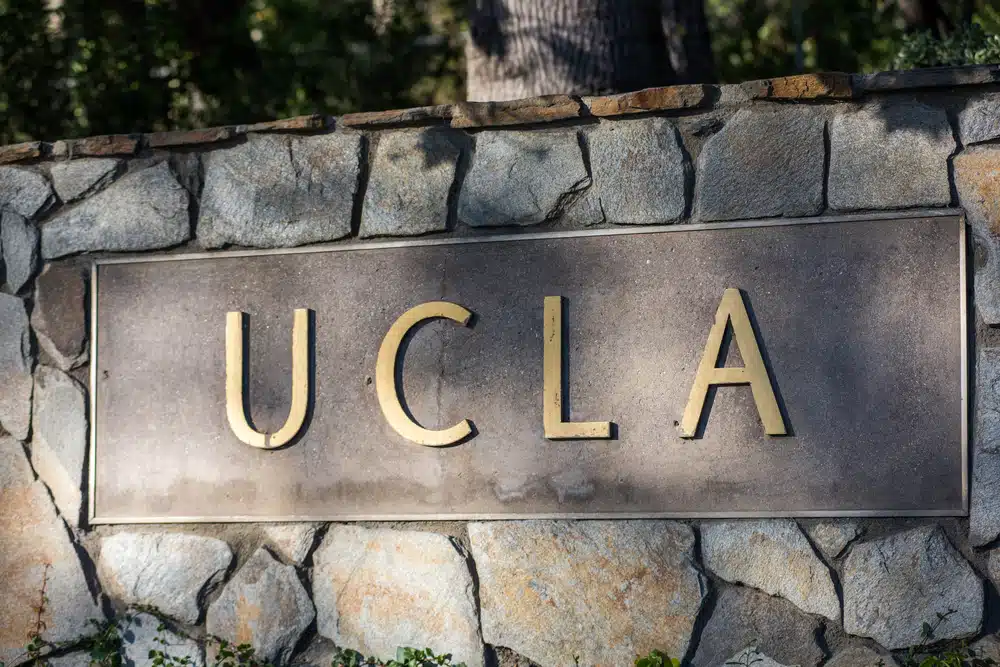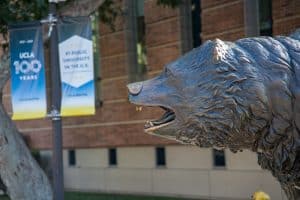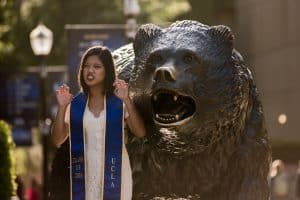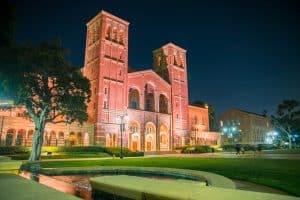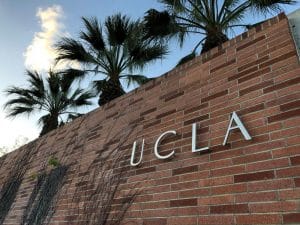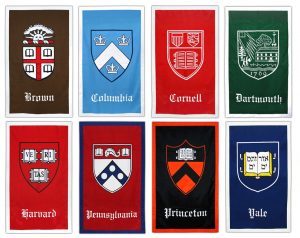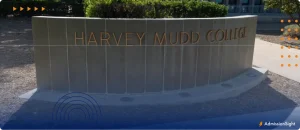Exploring the UCLA Curriculum
The University of California, Los Angeles, more commonly referred to as UCLA, offers a dynamic and diverse curriculum aimed at equipping students with the skills and knowledge they need to be successful in their chosen fields. In this article, we will delve into the intricacies of the UCLA curriculum to give you a comprehensive understanding of what they have to offer.
Understanding the UCLA Education System
The UCLA education system is designed to ensure that students gain broad exposure to different disciplines, even as they specialize in their major subjects. This approach, rooted in the belief that a well-rounded education is the key to personal and professional growth, is a defining characteristic of UCLA’s curriculum.
At UCLA, education goes beyond the boundaries of traditional academic disciplines. The university emphasizes the importance of interdisciplinary learning, encouraging students to explore connections between different fields of study. This interdisciplinary approach not only enhances students’ critical thinking skills but also prepares them to tackle complex real-world challenges that require a multifaceted perspective.
UCLA’s commitment to holistic education is reflected in the diverse range of courses available to students. From the humanities to the sciences, from the arts to engineering, UCLA offers a wide array of subjects to choose from. This ensures that students have the opportunity to explore their interests and passions while also gaining a comprehensive understanding of the world around them.
The Philosophy Behind UCLA’s Curriculum
UCLA’s curriculum is anchored by the philosophy of holistic education. They firmly believe that a well-rounded education encompasses a broad understanding of a variety of subjects, not just expertise in a specific discipline. The philosophy ensures that UCLA graduates are not just specialists in their fields but also possess a wider academic perspective that empowers them to adapt and succeed in the fast-changing world.
By encouraging students to engage with different disciplines, UCLA fosters a culture of intellectual curiosity and interdisciplinary collaboration. Students are encouraged to think critically, challenge assumptions, and explore new ideas. This philosophy extends beyond the classroom, with UCLA providing numerous opportunities for students to engage in research, internships, and community service that further enrich their educational experience.
UCLA’s commitment to holistic education is also evident in its emphasis on experiential learning. The university believes that hands-on experiences are essential for deepening understanding and developing practical skills. Whether through fieldwork, laboratory experiments, or creative projects, UCLA students have the opportunity to apply their knowledge in real-world contexts, preparing them for future careers and lifelong learning.
For this reason, flexibility is a fundamental aspect of the UCLA curriculum. This flexibility enables students to take courses across several departments, fostering intellectual diversity and interdisciplinary learning.
The Structure of UCLA’s Academic Year
The academic year at UCLA is divided into quarters, not semesters. The fall, winter, and spring quarters each last for ten weeks, plus a week of final exams. There is also an optional summer term, which is split into several different sessions of varying lengths.
The quarter system offers unique advantages for UCLA students. With shorter terms, students have the opportunity to delve into subjects more intensively, allowing for a deeper understanding of the material. The shorter duration also means that students can explore a wider range of topics throughout their time at UCLA, expanding their knowledge and intellectual horizons.
Because of this quarter system, UCLA students tend to take fewer classes at once than they would under a semester system. This smaller course load allows students more time to focus on each class, engaging in meaningful discussions, conducting research, and collaborating with peers. It also provides students with the flexibility to pursue extracurricular activities, internships, or part-time jobs, further enhancing their overall educational experience.
Additionally, the quarter system at UCLA allows for more frequent opportunities to evaluate progress and make adjustments. With three quarters in an academic year, students have the chance to reflect on their learning, seek assistance if needed, and make the necessary adjustments to ensure their academic success.
Overall, the structure of the academic year at UCLA supports a dynamic and engaging learning environment where students can fully immerse themselves in their studies and make the most of their educational journey.
Diving into UCLA’s Undergraduate Programs
UCLA offers an extensive range of undergraduate programs. From the sciences to the humanities, students have the option to choose from numerous majors and minors that cater to their academic interests and career goals.
At UCLA, the possibilities are endless when it comes to undergraduate programs. With over 125 majors and approximately 90 minors across various disciplines, students can truly find their niche. Whether you’re interested in Biology, Philosophy, Film, or Behavioral Neuroscience, UCLA likely has a program that aligns with your interests.
But UCLA doesn’t stop at offering commonly offered majors. The university values innovative education and offers some unique interdisciplinary majors like “Human Biology and Society” or “Cognitive Science.” These programs reflect the university’s commitment to academic diversity and intellectual exploration. Students have the opportunity to delve into fascinating subjects that bridge multiple disciplines, allowing for a well-rounded and enriching educational experience.
Unique Features of UCLA’s Undergraduate Studies
One of the significant highlights of UCLA’s undergraduate studies is the focus on research, an integral part of the UCLA curriculum. UCLA encourages its undergraduates to participate in research projects, recognizing that such firsthand experience can contribute significantly to their intellectual development. Students can work alongside renowned faculty members, engaging in groundbreaking research that pushes the boundaries of knowledge in their respective fields.
Furthermore, UCLA undergraduate studies also emphasize experiential learning. Many programs require or offer internships, study abroad opportunities, and service-learning courses that provide students with practical experience in their fields of study. These hands-on experiences not only enhance students’ understanding of their chosen disciplines but also equip them with valuable skills and real-world perspectives.
Imagine studying marine biology and having the opportunity to conduct research on the beautiful California coastline or studying art history and being able to intern at a prestigious museum in Los Angeles. UCLA’s commitment to experiential learning ensures that students can apply what they learn in the classroom to real-world settings, preparing them for success in their future careers.
Moreover, UCLA’s vibrant campus community offers a multitude of extracurricular activities and organizations that complement students’ academic pursuits. From joining clubs related to their majors to participating in cultural organizations, students can engage in a wide range of activities that foster personal growth and create lifelong friendships.
UCLA’s undergraduate programs not only provide students with a solid foundation in their chosen fields but also nurture their intellectual curiosity and passion for learning. With a commitment to research, experiential learning, and a vibrant campus community, UCLA offers an unparalleled undergraduate experience that prepares students for a future of endless possibilities.
A Closer Look at UCLA’s Graduate Programs
Moving beyond the undergraduate level, UCLA also offers a wide spectrum of graduate programs catering to students seeking advanced degrees in their disciplines.
UCLA is renowned for its commitment to academic excellence and offers an extensive range of master’s programs across various disciplines. Whether you have a passion for Arts and Architecture, Education and Information Studies, or Engineering and Applied Science, UCLA has a program to suit your interests and career goals.
One notable aspect of UCLA’s master’s programs is the emphasis on research. Students are given the opportunity to fully immerse themselves in their field of study, conducting in-depth research and making novel contributions to knowledge. This hands-on approach allows students to develop critical thinking skills and gain practical experience that will benefit them in their future careers.
Moreover, UCLA’s master’s programs provide a supportive and collaborative environment for students. Faculty members are experts in their respective fields and are dedicated to mentoring and guiding students throughout their academic journey. This close interaction with faculty members fosters a strong sense of community and encourages intellectual growth.
Doctoral Programs at UCLA
For students seeking to further their academic journey and pursue the highest level of education, UCLA offers over 100 doctoral programs. These programs are known for their rigor and depth, providing students with the opportunity to become experts in their fields and contribute to the frontier of knowledge.
UCLA’s doctoral programs are designed to challenge students intellectually and push the boundaries of their chosen disciplines. Through a combination of coursework, independent research, and collaboration with faculty members, students are equipped with the skills and knowledge necessary to become thought leaders in their respective fields.
One of the key advantages of UCLA’s doctoral programs is the access to cutting-edge research opportunities. Students have the chance to work closely with renowned faculty members on groundbreaking research projects, allowing them to gain valuable insights and contribute to the advancement of knowledge in their field.
Furthermore, UCLA provides a supportive and stimulating environment for doctoral students. Regular seminars, workshops, and conferences offer opportunities for intellectual exchange and collaboration with peers and faculty members. This vibrant academic community fosters interdisciplinary discussions and encourages students to explore new ideas and approaches.
In conclusion, UCLA’s graduate programs offer a wealth of opportunities for students to pursue their academic and professional goals. Whether you choose a master’s program or a doctoral program, you can expect to receive a high-quality education, engage in cutting-edge research, and be part of a vibrant academic community that will prepare you for success in your chosen field.
The Role of General Education Courses at UCLA
Regardless of what program a student chooses at UCLA, General Education (GE) courses form an integral part of the curriculum. These courses are designed to ensure that all students, regardless of their major, receive a comprehensive, well-rounded education.
At UCLA, the importance of General Education (GE) courses cannot be overstated. These courses play a crucial role in shaping the educational experience of every student, providing them with a solid foundation of knowledge and skills that will serve them well throughout their lives.
One of the primary purposes of GE courses at UCLA is to help students develop a broad knowledge base and critical thinking skills that can be applied in a variety of real-world contexts. By exposing students to a wide range of disciplines, from the social and physical sciences to the humanities, these courses aim to enhance their understanding of the world and themselves.
However, the benefits of GE courses go beyond just acquiring knowledge. They also cultivate a lifelong love of learning, instilling in students a curiosity and thirst for knowledge that will continue long after they graduate. By encouraging students to explore different areas of study, GE courses help them discover new interests and passions.
Furthermore, GE courses at UCLA are designed to prepare students for civic engagement, careers, and further study. By providing a well-rounded education, these courses equip students with the skills and knowledge they need to be active and informed citizens capable of making a positive impact on society.
The Variety of General Education Courses Offered
UCLA offers a rich array of GE courses spanning various disciplines. Students can choose a course that aligns with their interests, be it studying the cultural significance of food, exploring the relationship between literature and science, or understanding the modern urban environment.
For those interested in the arts and humanities, there are GE courses that delve into the history of art, literature, music, and philosophy. These courses not only provide students with a deeper appreciation for the cultural achievements of humanity but also encourage them to think critically and engage with complex ideas.
For those with a scientific inclination, there are GE courses that explore the wonders of the natural world, from the intricacies of biology to the mysteries of the universe. These courses not only teach students about the latest scientific discoveries but also foster a scientific mindset, teaching them how to approach problems with curiosity and skepticism.
For those interested in social sciences, there are GE courses that examine the complexities of human behavior, societies, and cultures. These courses provide students with a deeper understanding of the world around them, helping them develop empathy and critical thinking skills that are essential for navigating an increasingly interconnected and diverse society.
These diverse GE courses at UCLA foster creativity, critical thinking, and open-mindedness, preparing students for success in an uncertain and rapidly changing world. Whether it’s analyzing historical events, debating ethical dilemmas, or exploring the impact of technology on society, these courses challenge students to think deeply and critically about the world they inhabit.
In conclusion, General Education courses at UCLA are not just a requirement to be fulfilled; they are an opportunity for students to broaden their horizons, explore new disciplines, and develop the skills and knowledge necessary for personal and professional success. By providing a well-rounded education, these courses lay the foundation for a lifetime of learning and growth.
The Impact of UCLA’s Research Opportunities
Universities are often judged by the research they produce, and UCLA is one of the leading research universities in the world. Research forms a crucial component of both the undergraduate and graduate experience at UCLA.
Research Opportunities for Undergraduates
UCLA offers a wealth of research opportunities for undergraduates across all disciplines. The university encourages participation in research as it gives students valuable experience in problem-solving, creative thinking and hands-on application of their classroom knowledge.
Research is not confined to those in the scientific fields; UCLA encourages students from all majors, including the humanities and social sciences, to engage in research, attesting to the university’s commitment to intellectual exploration and innovation.
Research Opportunities for Graduate Students
For graduate students, research takes on even greater significance. UCLA couples rigorous academic coursework with active research in a wide range of areas. Students collaborate with faculty, engage in complex problem-solving, and make significant contributions to their fields of study.
In conclusion, the UCLA curriculum is a vibrant, flexible system that encourages both depth and breadth of study. Whether you’re an undergraduate exploring different fields or a graduate student delving deep into your chosen discipline, UCLA provides a dynamic platform for intellectual growth grounded in a firm commitment to a holistic, well-rounded education.
Having all the necessary information is important before choosing any course of action. AdmissionSight is always here to assist you with any questions or concerns. We have more than ten years of expertise assisting students in successfully navigating the challenging admissions process.
Consult with AdmissionSight and find out what we can do to help you get into the school of your choice by ensuring that you are sufficiently aware and well-prepared for the application process.



